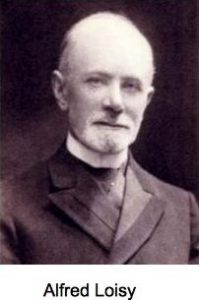The previous post concluded with
Continuing . . . .
…
What we would have in Galatians is not Paul’s version of events but Saturnilus’ version of Paul.
There have been biblical scholars who rejected—and not for religious reasons—the Galatians version of events and, on some points, were willing to accept that of Acts.
| 4th Jan 2021: See comments below for revisions by Roger Parvus to his original post: |
The Real Paul
If in the Pauline letters someone—whether Saturnilus or someone else—has made Paul the recipient and bearer of a new gospel i.e., the Vision of Isaiah, it would mean that our knowledge of the real Paul is more questionable than ever. The widely accepted rule in New Testament scholarship has been to give Paul’s letters the nod whenever their information conflicts with that of the Acts of the Apostles, especially concerning Paul himself. His information is first-person and earlier than Acts. The author of Acts seems to be more ideologically-driven than Paul. So Paul’s account in Galatians 1:1-2:14 of how he came by his gospel and became an apostle is considered more accurate than what Acts says about the same matters. Likewise regarding Paul’s account of how in the presence of James, Peter and John he defended his gospel and received their approval of it. But this preference for the Galatians account of events takes a hit if it was in fact written by someone like Saturnilus who was looking to promote the gospel he had projected onto Paul. What we would have in Galatians is not Paul’s version of events but Saturnilus’ version of Paul.
 There have been biblical scholars who rejected—and not for religious reasons—the Galatians version of events and, on some points, were willing to accept that of Acts. Alfred Loisy was one:
There have been biblical scholars who rejected—and not for religious reasons—the Galatians version of events and, on some points, were willing to accept that of Acts. Alfred Loisy was one:
The legend of Paul has undergone a parallel amplification to that of Peter, but on two different lines: first, by his own statements or by the tradition of his Epistles designed to make him the possessor of the true Gospel and of a strictly personal mission for the conversion of the Gentile world; and then by the common tradition for the purpose of subordinating his role and activity to the work of the Twelve, and especially of Peter regarded as the chief instrument of the apostolate instituted by Jesus.
Relying on the Epistles and disregarding their apologetic and tendentious character, even in much that concerns the person of Paul, though this is perhaps secondary, criticism is apt to conclude that Paul from his conversion onwards had full consciousness of an exceptional calling as apostle to the pagans, and that he set to work, resolutely and alone, to conquer the world, drawing in his wake the leaders of Judaic Christianity, whether willing or not. And this, indeed, is how things happened if we take the indications of the Galatian Epistle at their face value. There we encounter an apostle who holds his commission from God only, who has a gospel peculiar to himself given him by immediate revelation, and has already begun the conquest of the whole Gentile world. No small claim! (Galatians i, 11-12, 15-17, 21-24; ii, 7-8).
But things did not really happen in that way, and could not have so happened…
Interpret as we may the over-statements in the Epistle to the Galatians, it is certain that Saul-Paul did not make his entry on the Christian stage as the absolute innovator, the autonomous and independent missionary exhibited by this Epistle. The believers in Damascus to whom Paul joined himself were zealous propagandists imbued with the spirit of Stephen, and there is nothing whatever to suggest that he was out of his element among them. Equally, he was quite unaware at that time of possessing a peculiar gospel or a vocation on a different level from that of all the other Christian missionaries. That idea he certainly did not bring with him to Antioch, where he found a community which others had built up and which recruited non-Jews without imposing circumcision. For long years he remained there as the helper of Barnabas rather than his chief... (La Naissance du Christianisme, ET: The Birth of the Christian Religion, translation by L.P. Jacks, University Books, 1962, pp. 126-7)
My hypothesis supports Loisy’s claim that the real Paul was commissioned as an apostle in the same way that other early missionaries were: by being delegated for a mission by a congregation which supported him. And that the real Paul’s gospel was no different from theirs: the kingdom of God is at hand and Jesus will be coming to establish it. But if that is the way the real Paul was, why does Acts try to take him down a notch? Continue reading “Revising the Series “A Simonian Origin for Christianity”, Part 3”
